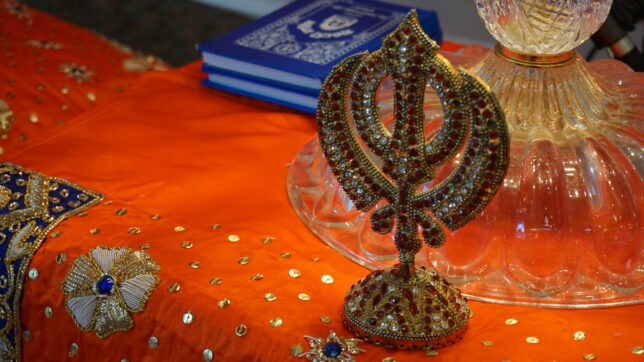
As the reality of Donald Trump as president sinks in, my fears worsen about how some of his supporters could act out against minorities like me.
My sister and I were born and raised on Long Island to parents who came from India. My father arrived in America in 1970 and lived in Brooklyn. My mother moved to the United States in 1983 after she and my dad were married in India. We lived in Lynbrook and later in Hempstead.
For most of my life, I’ve been fortunate to have never felt threatened because of the tan color of my skin — until now. My father has experienced racism here. The turban he wears as a Sikh may have been a source of tension or insults in public, but he has never spoken about it with his daughters. But we knew. The image of a wooden bat in the front seat of my dad’s car a few days after 9/11 is etched in my mind. There was no need to ask why it was there.
Before 9/11, and especially after, Sikhs were physically attacked because people confused them with Muslims.
The Sikh Coalition, a civil rights advocacy group, counted more than 140 anti-Sikh hate crimes between 2001 and 2012 in the United States. After the deadly shootings by Muslim extremists in Paris and San Bernardino in 2015, the coalition saw a surge in cases. The FBI began tracking hate crimes against Sikhs only last year.
The FBI says anti-Muslim incidents rose 67 percent in 2015 — 257 incidents compared with 154 the year before. Likewise, Trump’s campaign began in 2015. No one knows how many attacks might have been linked to his supporters.
An ominous moment occurred at a Trump rally in Iowa in January. Trump pointed out a protester in a red turban who was escorted out because of his “stop hate” banner.
“He wasn’t wearing one of those hats, was he?” Trump said, apparently referring to the turban. “And he never will, and that’s OK, but we got to do something folks, because it’s not working.”
The protester was Sikh, like me. Making sport of the turban integral to the man’s faith was an insult.
I also think back to Aug. 5, 2012. On that day in Oak Creek, Wisconsin, a white supremacist gunman walked into a Sikh temple, a gurdwara, where members were in the kitchen preparing langar, food served to the congregation. He opened fire; six lives were lost.
My mother attends services every Sunday and Wednesday at our temple in Nassau County. She helps cook langar, which is vegetarian to accommodate people of all backgrounds. Langar may include roti (bread), lentils, rice, yogurt and dessert.
My sister and I haven’t dealt with severe discrimination as other Sikhs have since 9/11. We’ve been lucky. My mom says she isn’t worried for her safety, but my sister and I do worry every time there is an incident that might fan flames of hatred.
A new president should represent a new beginning for the nation, but this is an administration I greet with trepidation. So many of the “others” that Trump has mocked and humiliated — immigrants, minorities, Muslims, women and disabled people — are genuinely frightened by the behavior his rise could unleash. People wanted change, but I don’t know if this is the change we wanted. We must help those who are scared for their safety find solace.
After meeting with Trump, President Barack Obama said, “We have to make sure he succeeds, because when he succeeds our country succeeds.” But for our nation to succeed, everyone must come together, and I don’t know if I can trust a man who has divided us further.
Suneet Mahandru is a graduate student in journalism at Hofstra University, and an intern with Newsday Opinion.